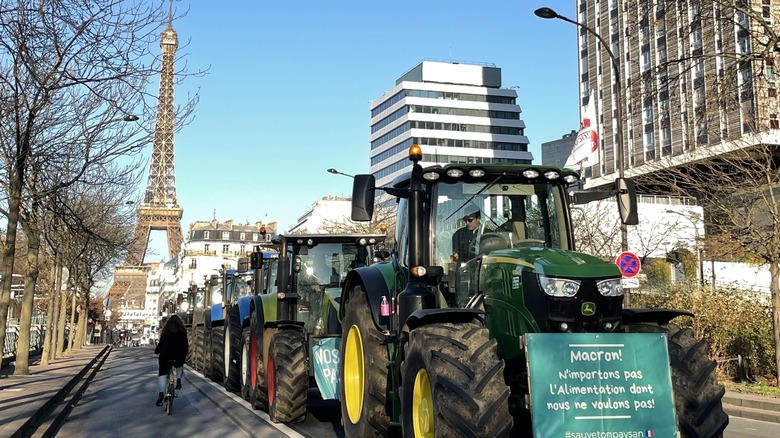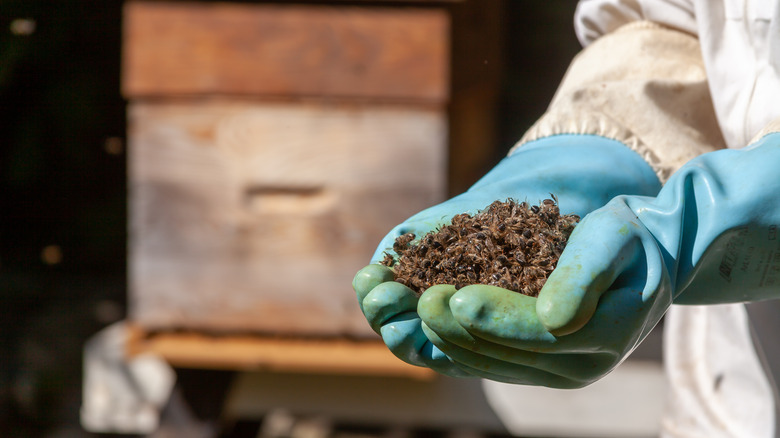French Farmers Took To The Streets Of Paris In Their Tractors To Protest A New Pesticide Ban
Hundreds of tractors barreled through the streets of Paris on Feb. 8, and not to fertilize the flower beds along the Coulee Verte. The procession was an act of protest led by French farmers, who are furious with the European Union court for overturning a French policy that allowed sugar beet growers to use neonicotinoids, a type of pesticide that is otherwise banned in the EU, per Bloomberg.
Farmers in France, the EU's largest agriculture producer, consider neonicotinoids to be vital to crop production. "Our means of production keep being undermined by prohibitions without solutions," Jerome Despey, the secretary general of Frances leading farming union, FNSEA, told Reuters. "Macron is liquidating agriculture," reads a sign on one of the tractors, referring to France's President, Emmanuel Macron.
The ban is the latest in a series of EU sanctions on pesticides that are harmful to the environment. Unfortunately, that means it's hard to please climate activists and commercial farmers alike. Neonicotinoids are particularly dangerous; they've been known to kill mass quantities of bees, which, ironically, are essential crop pollinators. Despite these environmental hazards, farmers in protest say the ban contradicts EU efforts to combat global food insecurity and risks putting France behind on exports.
Good for beets, bad for bees
Environmental activists claim that sugar beet seeds treated with neonicotinoids cause harm to the soil and to wildlife, including bees. The pollinators were first in mind when the EU made its initial ban of the pesticide, of which France was exempt, in 2018. On the other side of the aisle, French farmers say there's more harm in not using the stuff.
Namely, farmers argue the ban will put France behind on crop imports, as untreated sugar beet seeds are susceptible to the beet yellows virus. What's more, Bloomberg says the ban is "another headache" for farmers who are dealing with record-high fuel and fertilizer prices; a symptom of Europe's growing energy crisis. "The priority today is to reassure worried farmers and to present a compensation plan that will compensate them as soon as they see their first losses," a Seine-Maritime farmer Benoit Carton told the outlet.
As an alternative to neonicotinoids, which Carton says "had a limited impact" in 2020, the University of Massachusetts Amherst suggests using acetamiprid. The "reduced-risk" pesticide poses less danger to bees.

